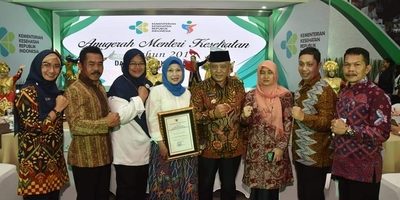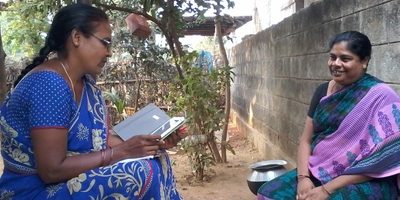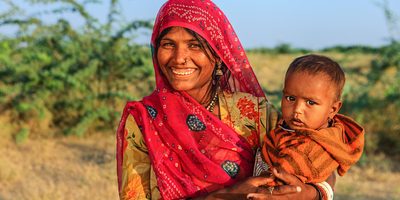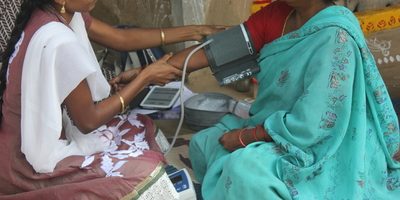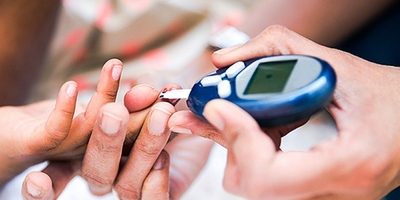
Bolstering Primary Health Care Delivery to Fight NCD’s
Leveraging Technology and Competency Development to Augment Health Systems
Millions of people in India live without reliable access to essential health care. And those with access find quality of care highly variable. In India, although 85% of deaths are caused by non-communicable diseases, the primary health care system is still focussed largely on infectious diseases and reproductive health. At all levels there is a lack of resources, technology, people and infrastructure.
Innovation to support health care delivery and systems preparedness is vital if we want to save or improve people’s lives.
The George Institute has developed an innovative people-centric and systems level mobile health (mHealth) technology platform that uses local resources to screen and manage patients with multiple conditions, such as cardiovascular, kidney diseases, diabetes, mental health, and high-risk pregnancy.
Community health workers go door-to-door conducting screenings to identify high risk patients, refer them to the doctor, and follow up on their adherence to treatment and doctor visits. The cases that are not high risk are managed by the health workers themselves.
The basic idea here is to stop a disease from becoming chronic through early identification, conducting community-based screening and following up on patient treatment plans.
This proven and tested solution is a combination of two very important innovations namely; technology and competency development of community health workers and processes that support technology adoption and implementation.
To ensure sustainability, the technology platform is developed and implemented with key stakeholders like district and state health authorities and can be easily integrated into other state-led digital platforms.
Simultaneously to helping patients now, the project provides evidence-based policy recommendations to the government.
Help us to scale community-based pilot interventions to reduce preventable mortality due to non-communicable diseases.


